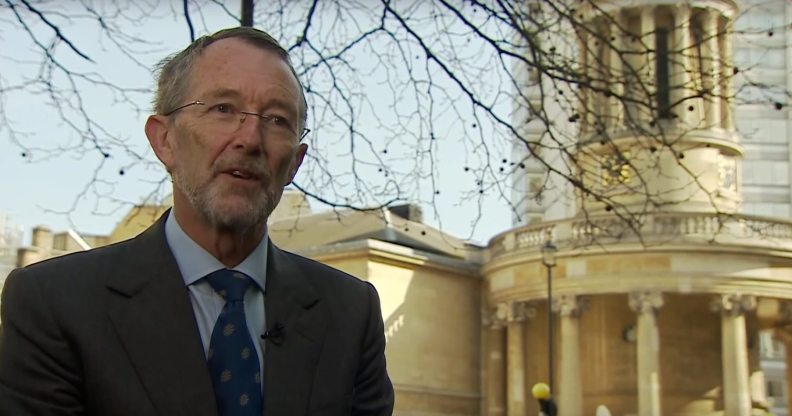Magistrate struck off for ‘prejudice’ against same-sex parents tells court he was the one discriminated against

Former magistrate Richard Page. (Christian Legal Centre)
A former family court magistrate who was sacked after he claimed in an adoption case that a child should be placed “with a mother and a father” is taking his case to the Court of Appeal.
Richard Page was suspended in 2015 over his comments and was struck off the following year by the Judicial Conduct Investigations Office (JCIO) after he reiterated his views on BBC Breakfast.
Page was struck off because his comments had shown he was “biased and prejudiced against single-sex adopters”, with the JCIO accusing him of bringing the magistracy into disrepute.
Since then, Page has launched a legal battle claiming he was wrongfully sacked for voicing his “Christian views” on parenting, according to BBC News.
The Employment Appeal Tribunal (EAT) dismissed his legal challenge in 2019, and he has since taken the case to the Court of Appeal.
Court of Appeal heard that Richard Page had his ‘world turned upside down’ when he was struck off.
Richard Page’s barrister Paul Diamond argued argued in court on Tuesday (November 3) that Page’s “world was turned upside down” when he was struck off over his comments.
The court heard that Page was reprimanded by both the lord chancellor and the lord chief justice and was told that he must undergo training to prevent a similar incident happening in the future.
However, he went on to speak to the BBC in March 2015 about his anti-LGBT+ views, which led to him being struck off in 2016.
Diamond told the court that Page appeared on the BBC because he believed he was subjected to “discrimination and detriment for the expression of the view that a child needs a father and a mother, views premised in his religious and philosophical beliefs”.
The barrister went on to argue that Page’s dismissal raised “complex issues on the right of an experienced judge to raise concerns about the welfare of children in a public forum”.
Page is supported by the Christian Legal Centre, an anti-LGBT+ lobbying group that frequently represents people sacked over homophobic views.
Andrea Williams, chief executive of the Christian Legal Centre, said: “Richard Page’s Christian understanding of the family is being treated as so offensive that those who express it are excluded from public life.
“Christians have tremendous capacity to serve society, but they are not only being told to leave their faith at the door – they are being told they cannot publicly express their faith anywhere.”
She insisted that Page “only wanted to do what was best for the child” by expressing his “well-founded belief” that the child should have a mother and a father.
He believes Christians must ‘take a stand for their freedoms’.
Meanwhile, Page said in a statement: “I am fighting this battle because I do not want anyone else to go through what I have. I do not want Christian beliefs to be barred from important positions in public life.”
He said Christians must “take a stand for their freedoms, for the truth, and for the futures of our children”.
Page has previously faced criticism from the National Secular Society, which said in 2019 that his personal views had influenced decisions.
“By allowing his personal religious views to influence his judicial decision-making, Mr Page undermined the principle of impartiality, and therefore, the judiciary itself,” chief executive Stephan Evans said at the time.
The case is ongoing.

